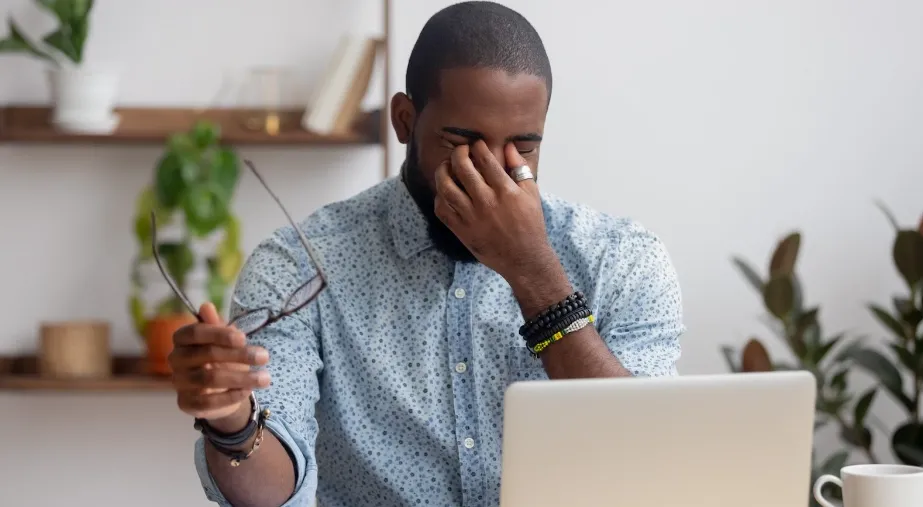Stress has become an all-too-familiar companion in our modern lives. From demanding work schedules to dealing with constant traffic gridlock, it can leave us feeling exhausted. However, you may have also noticed a constant pain in your back whenever stress takes hold.
So, here’s a question that usually pops up: why does your lower back seem to ache whenever you’re feeling stressed or overwhelmed? Keep reading for more details about this correlation.
Understanding the Causes and Impact of Lower Back Pain
Lower back pain refers to discomfort or aches you feel in the area between the bottom rib and the buttock crease. It’s more common than you think—it’s estimated that up to 80% of adults have experienced lower back pain at some point during their lives.
The causes of lower back pain are quite diverse, ranging from muscle sprains or strains to injuries, herniated discs, spinal stenosis, or degenerative disc disease. However, this pain doesn’t stem from injuries or medical conditions; lifestyle factors like poor posture, a lack of exercise, and being overweight can also trigger it.
How does stress take a toll on your mind and body? Lower back pain can cause a myriad of unpleasant consequences that could hinder your daily routine. Chronic pain or regular pain may cause:
- Discomfort
- Loss of mobility
- Affect sleep quality
- Frustration
- Anxiety
- Depression
If the pain lasts more than three months—also known as chronic pain—it may also affect personal relationships and work. Remember: if you feel lower back pain, don’t set it aside, as you may increase the chances of the pain becoming chronic.
Exploring the Link Between Stress and Lower Back Pain
When you are dealing with stressful situations, your body usually reacts to help you cope with perceived threats and challenges. One common reaction is an increase in muscle tension. When you’re stressed, your muscles usually tense up. If they remain contracted, it can cause discomfort and pain, especially in areas more prone to tension, like your lower back.
This correlation between pain and stress has been backed up by some trial studies that have found that people with higher levels of stress were more likely to experience lower back pain symptoms.
Moreover, stress has another knock-on effect on our brains. Research has revealed that stress could alter how the central nervous system responds to pain, making us more sensitive to it. This heightened sensitivity can worsen lower back pain or even trigger its onset in those who may already have a predisposition to it.
While there is proof that stress and lower back pain are linked, stress alone may not directly cause lower back pain. However, it certainly can exacerbate existing conditions or make people prone to developing pain in that area.
Coping Strategies and Prevention
There are various coping strategies and preventive measures that could help you prevent lower back pain and reduce its impact on your life or work. You can tackle stress and reduce the occurrence and severity of lower back pain with these practical tips.
Meditation and Mindfulness Exercises
Regular meditation or practicing breathing methods can help you reduce stress levels and stay relaxed. Consider these three suggestions and bake them into your routine:
- Take a few minutes each day to focus on your breath.
- Take some time to observe your thoughts.
- Try out guided meditation apps to help calm your mind.
Physical Activity
Incorporating regular physical activity into your routine can help strengthen your muscles, improve flexibility, and support spinal health. Here are some basics you could try:
- Aim for at least 30 minutes of moderate-intensity exercise.
- Exercise at least four days a week.
- Consider brisk walking, cycling, or strength training.
Self-Care Practices
Maintaining a proper posture while sitting, standing, and lifting is the best way to minimize straining your lower back. Let’s take a look at other tips to avoid feeling that annoying lower back pain:
- Use ergonomic chairs or equipment if necessary.
- Take frequent breaks to stretch and move if you remain seated for a prolonged period of time.
- Engage in activities that help you relax, such as reading, spending time in nature, or listening to calming music.
- Take time for yourself, even with a hectic schedule.
Are you seeking professional help to treat your lower back pain? At Arkansas Spine and Pain, we are here to support you on your journey toward a pain-free life. If you live in Arkansas, our experienced doctors are ready to diagnose you and provide the best treatment to restore your quality of life. Contact us today and send us a message, or give us a call at 501-988-3473 to learn more.

